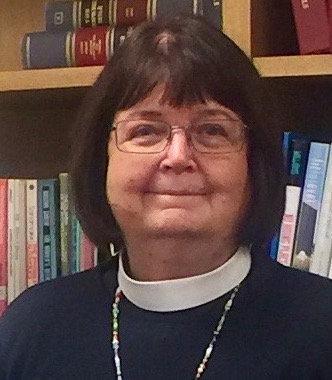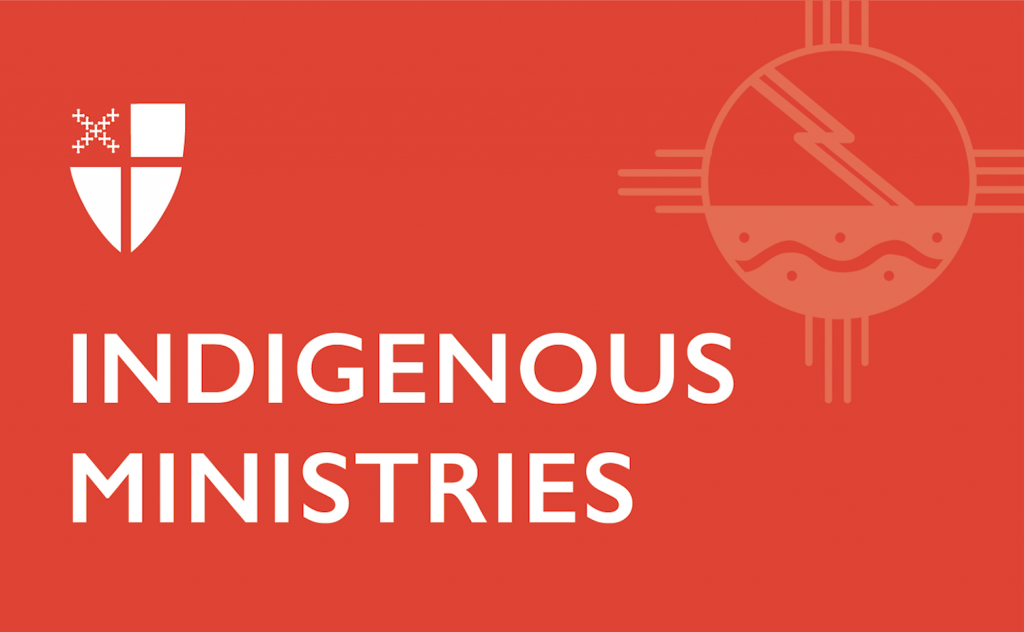The Office of Indigenous Ministries celebrates the longstanding presence and influence of Native Americans throughout the history of The Episcopal Church.
Exercising a deep spirituality grounded in respect for and care of creation and others, Indigenous Episcopalians enrich the church through myriad roles in lay and ordained ministry, modeling wisdom, resilience, and forbearance.
Indigenous Ministries works for the full inclusion of Indigenous people in the life and leadership of the church. In seeking to fulfill this goal, the church welcomes partners who will:
- Guarantee that Indigenous people are fully recognized and welcomed into congregational life through education, advocacy, and leadership development;
- Create influential leadership roles in the church for Indigenous people;
- Develop a national support system for continued remembrance, recognition and reconciliation of all Indigenous people within the church and world;
- Develop a network of leadership and educational resources to empower Indigenous people to prepare for mission and ministry in The Episcopal Church and the world;
- Provide resources, advocacy and support to Indigenous theology students, those in the ordination process, and lay congregational leaders.
As an institution, The Episcopal Church recognizes and repents of its harmful treatment of Native Americans. In 1997, the church signed a new covenant of faith and reconciliation almost 400 years after Jamestown colonization, apologizing for its past actions and launching a decade of “remembrance, recognition and reconciliation.” In 2009, the church’s General Convention passed a resolution repudiating the 15th century-based Doctrine of Discovery, which “held that Christian sovereigns and their representative explorers could assert dominion and title over non-Christian lands with the full blessing and sanction of the Church.”
In 2021, Presiding Bishop Michael B. Curry and House of Deputies President Gay Jennings issued a statement in response to the discoveries of mass graves of Indigenous children on the grounds of former boarding schools in Canada, condemning such practices and committing to “the work of truth and reconciliation with Indigenous communities in our church.”
The vital work of remembrance, recognition and reconciliation in connection with our Indigenous siblings continues.
Video Library
Resources
The Episcopal Church and Indigenous Land Acknowledgements
In response to two resolutions passed at the 80th General Convention (2022), many congregations, dioceses, and other church groups and organizations have begun the practice of making land acknowledgements regarding the Indigenous tribal people who used to live on the land they currently occupy, and in some cases still do.
When implementing a land acknowledgement, it is important to be aware of their purpose.
In short, a land acknowledgement is the start of a process that is intended to lead to something more. This could result in any number of possibilities, with the overall objectives being a deepening of the awareness of Indigenous peoples and living in right relationship with humanity and all of creation.
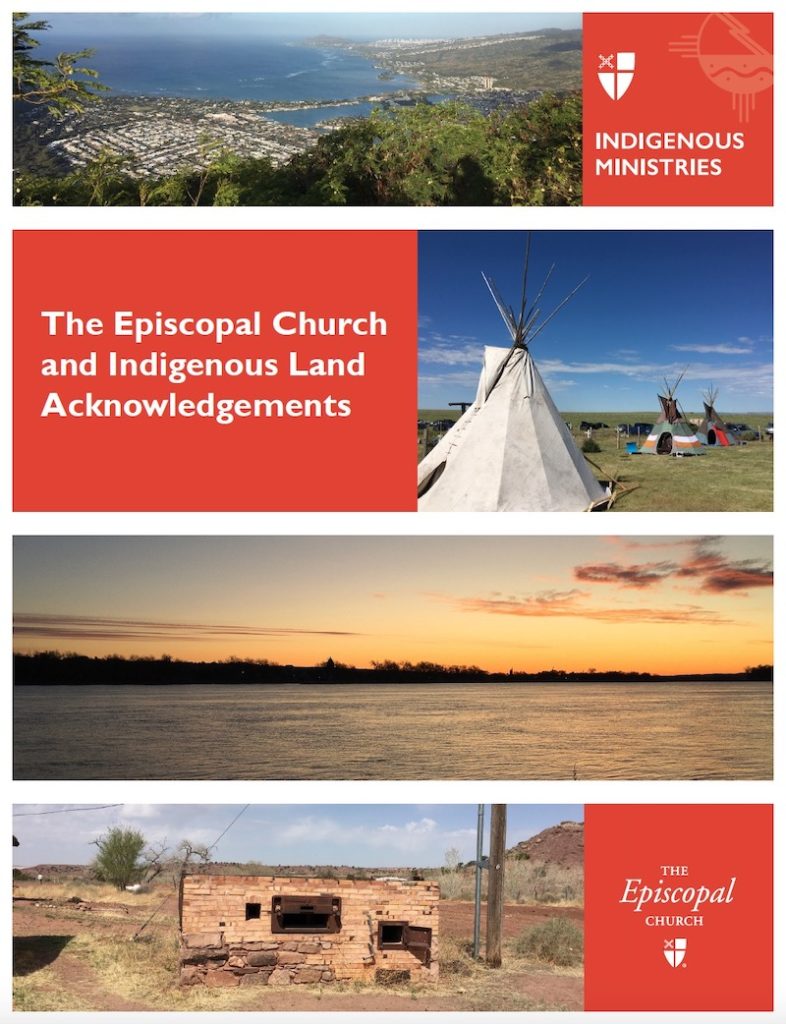
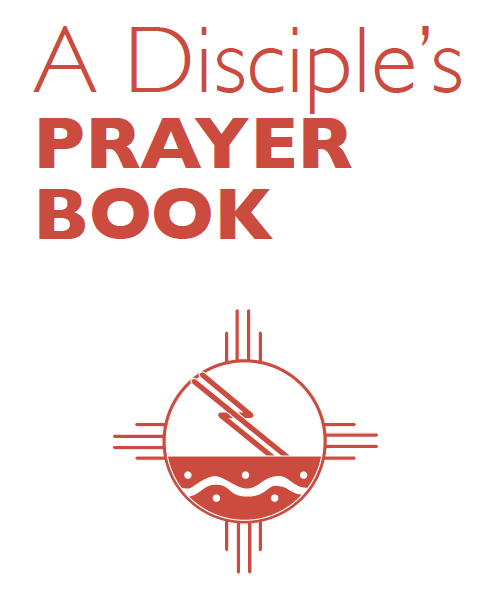
A Disciple’s Prayer Book
“A Disciple’s Prayer Book,” along with a Bible or scripture passage, provides an excellent way of encountering Christ within the sacred circle of the Gospel and with one another. It demonstrates that God’s word is not just a collection of words that were written down many centuries ago; rather, God’s word is alive and at work within God’s people and the community of faith. This resource can be used on its own or within the context of a more extensive liturgy. Interested in ordering physical copies? Contact the Rev. Bradley Hauff.
Doctrine of Discovery Resources
Find more information about The Episcopal Church’s history with and repudiation of the Doctrine of Discovery in the video playlist above or by exploring related resources by clicking the button below.
Find a Congregation
Upcoming Events
Past Events
Meet the Staff
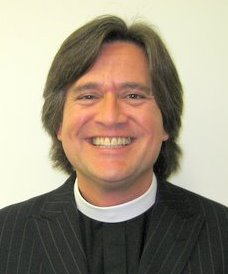
The Rev. Dr. Bradley S. Hauff is the Episcopal Church Missioner for Indigenous Ministries, a member of the Presiding Bishop’s staff. As Missioner for Indigenous Ministries, he is responsible for enabling and empowering Indigenous peoples and their respective communities within The Episcopal Church. His primary focus will be leadership development, education, and ministry development opportunities by and for Indigenous peoples by recognizing and empowering leaders from within the community. He holds a Master of Divinity from Seabury-Western Theological Seminary; a Doctor of Clinical Psychology from Minnesota School of Professional Psychology of Argosy University; a Master of Education from South Dakota State University; and a Bachelor of Arts, Augustana College, Sioux Falls, South Dakota. Read more here.
The Rev. Canon Mary Crist, Ed.D., (Piitaki/Eagle Woman) is enrolled in the Blackfeet nation in Montana. She was appointed Coordinator of Indigenous Theological Education for The Episcopal Church in 2019. She is a visiting professor at Bexley Seabury Seminary, and a priest in the Episcopal Diocese of Los Angeles serving at St. Michael’s Ministry Center in Riverside. She has 27 years of experience in education as a teacher, professor, dean, and founding head of an Episcopal School in Texas and an independent school in Massachusetts. She is married to The Rev. Will Crist. She earned the Doctor of Education at Columbia University, the Master of Divinity at Claremont School of Theology, the Master of Education at Pan American University, and the Bachelor of Arts at the University of California Berkeley. She is the author of numerous articles in early childhood education, special education, online instructional design, and Indigenous theological education.
